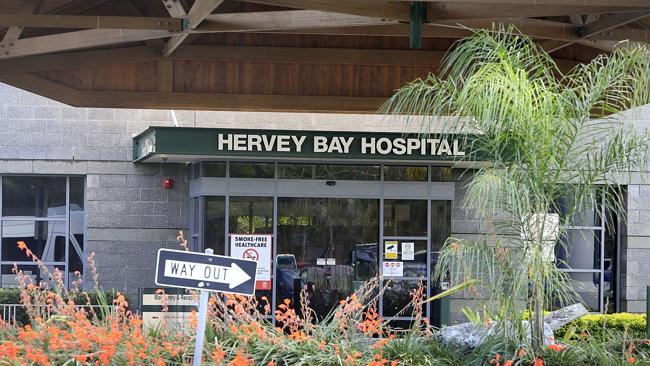
Hervey Bay Hospital clinicians are conducting a review of patients discharged in the past few weeks after legionella was found in a patient who died from unknown causes. Source: News Limited
HERVEY Bay Hospital has put GPs on alert for any recently discharged patients showing pneumonia-like symptoms as precautions are stepped up in the wake of a legionella scare.
This follows confirmation from Wide Bay Hospital and Health Service chief executive Adrian Pennington that the bacteria had been found in the hospital and in a man who died at the facility last month.
The case has prompted a review of random testing procedures which are currently carried out monthly at health facilities in the region.
PARAMEDIC: Fear of measles outbreak
A WBHHS spokesman said precautionary measures at Hervey Bay Hospital, including no drinking from taps and patients receiving sponge baths rather than showers, will continue until the all-clear is given.
GPs in the region have been warned to watch for any recently released hospital patients who may come to see them with symptoms.
The symptoms can take several days to emerge.
Hospital clinicians are also conducting a review of patients discharged in the past few weeks and will contact them if they have any concerns.
Legionella bacteria grows inside plumbing fixtures and pipes, where warm temperatures and the build-up of nutrients and micro-organisms on surfaces provide an ideal environment. When people inhale microscopic droplets of contaminated water, they can contract legionnaires’ disease.
Mr Pennington said medical staff had ordered an autopsy on a patient who died on April 20 from unknown causes. He said full test results could take several weeks.
“When the initial findings of the autopsy report were made available to WBHHS, Queensland Health was immediately informed and further legionella testing was undertaken at the hospital last week,” he said.
WBHHS public health physician Dr Margaret Young said legionella bacteria was always present in the environment and often found in low concentrations in water supplies.
Any recent patient with concerns can call 13 HEALTH for further information
